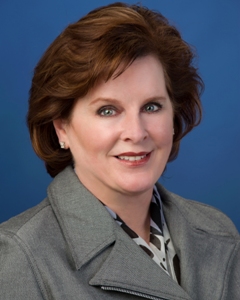Expanding Health Care Access—A Case Study

While many legislators seem intent on narrowing women’s access to affordable care, individuals and foundations still work to expand it. Such is the mission of Dana Dornsife.
As the Komen-Planned Parenthood conflict spun into the forefront of feminist consciousness last month—with the possibility that poor women and women of color might lose access to cancer screening—I felt grateful to another organization that pays special attention to the healthcare needs of low-income minority women.
Dana Dornsife, after tirelessly researching lifesaving clinical drug trials for a loved one with pancreatic cancer, founded the Lazarex Cancer Foundation in 2006. Lazarex initially focused solely on connecting end stage cancer patients with the latest medical breakthroughs via clinical drug trials. While pursuing this mission, Dornsife discovered that women of color make up less than 2 percent of the total population that participate in clinical trials for cancer treatment. This finding raised a red flag for Dornsife, who knew that a patient’s response to a particular drug can be dependent on their specific ethnic background.
Recognizing these special needs of minority women, the Lazarex Cancer Foundation, with Dornsife at the helm as president, recently rededicated its mission to addressing the disparity of the minority population’s participation in the clinical trials for cancer treatment. Statistics show Latinas with about twice the incidence of cervical cancer compared to other women and African American women with the highest incidence of breast cancer related deaths. “Unless we level the playing field and increase participation of minority women in clinical trials,” Dornsife says, “we will not have accurate conclusions as to the effectiveness of these potentially lifesaving drugs.”
To increase the participation of women of color in clinical drug trials, Lazarex also works to overcome the historical distrust of participation of clinical trials by the African-American community.
“We recognize the need to offer women of color opportunities to access health care at much earlier stages in their treatment.”
In response, Lazarex has also launched an outreach program. By targeting communities with populations that are either underinsured or uninsured and without access to medical programs or cancer screening options, Lazarex will offer essential medical resources and referrals while connecting women to preventative services such as mammograms.
“If you are a single mom and have to choose between putting food on the table for your family or getting a mammogram, you feed your family,” Dornsife explains. “What is happening is that minority women are being diagnosed with cancers at much later stages which makes their survivability much lower. We want to move their diagnoses up into Stage 1 and Stage 2 by offering participation in screenings and educating the women about early symptoms so they will have the same opportunity for early access to treatment and increased rates of survival.”
There are plenty of things to fume about—the Catholic bishops’ pressure to limit access to family planning services, or the efforts in Virginia and other states to control choice for women to name the most recent. But while we continue the seemingly endless and uphill fight to preserve funding and equitable health care access for all women, it is good to take a breath and acknowledge women, like Dornsife, who are seeing a need and making a huge difference, one woman and one community at a time.
To read more about the Lazarex Cancer Foundation go to its website, or follow its activities on Twitter: @LazarexCancer.
More articles by Category: Health, Race/Ethnicity
More articles by Tag:



























